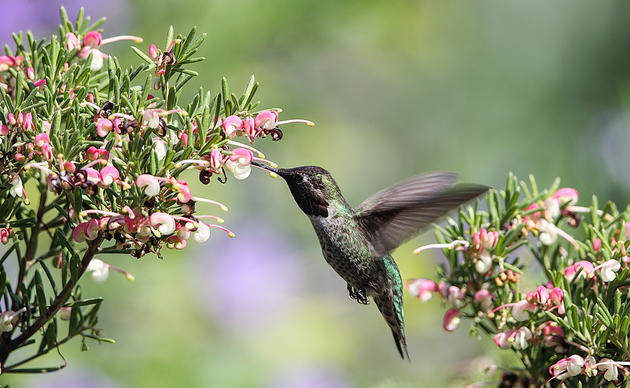When Audubon earlier this year released its long-awaited research on the potential impacts of global warming on birds, Harry Love and his colleagues at the Kern Audubon Society realized that their local elected officials needed to hear this startling information. Within just a few weeks of the September release of the Audubon report, Love, who is chapter president, made presentations to both the Bakersfield City Council and the Kern County Board of Supervisors.
“This study isn’t just an Audubon concern, it’s everyone’s concern,” Love said.
The Audubon study finds that global warming threatens the survival of 314 North American species. The California species in danger include the iconic Brown Pelican, Allen’s Hummingbird, Yellow-billed Magpie, and 167 others.
As part of his presentation to his local elected leadership, Love played recorded song from the Golden-crowned Kinglet to make the point that “these are the songs that you enjoy now, but that you might not enjoy in the future.” The Golden-crowned Kinglet is listed as Climate Threatened in the Audubon report.
Love also placed a strong piece about the importance of the report in the local Bakersfield Californian.
“If we do nothing,” he wrote, “many of these birds could disappear in our children's lifetimes. That would be a less joyful future by itself, but we know that losing our birds is not the only consequence of global warming. Extreme weather, fierce wildfires, agricultural disruptions, sea level rise and greater threats to our health -- these are consequences we're already seeing today.”
Love said that one of his chapter’s main goals in his presentations to elected officials was to highlight the potential impacts of global warming on birds that people see every day, such as finches and White-crowned Sparrows.
“People are always going to ask ‘How will this affect me?’” Love said. “And if they realize that this is a bird they’re used to seeing in their backyard or out their window, they’ll realize that this will mean something to them.”
Kern County is known for its conservative politics, an atmosphere that isn’t always receptive to messages about global warming. But Love said that he didn’t encounter these objections in any of his dealings with elected leaders. He attributed it to Audubon’s reputation, and the personal relationships he enjoys with many of the elected officials. He also noted that the publisher of the local daily newspaper, the Bakersfield Californian, is an Audubon member, and that he is a longtime friend of the editor.
“Audubon has a highly regarded position in the public realm,” Love said. “I also think that since two of the supervisors and the mayor are long time acquaintances of mine, it gave me access that might not be available to others.”
The ability of Kern Audubon to talk about global warming in a conservative county is exactly what Audubon officials hope will help break down what has thus far been a polarized discussion on the issue. Audubon chapters are truly embedded in the fabric of local communities.
Love said that his chapter has no intention of slowing down in its efforts to spread the word about global warming and birds. At its chapter meeting this week, he intends to show his members Audubon’s short video on the subject.
“This is important information,” Love emphasizes. “Birds are such a positive thing for our community, for our lives.”
In letters to both the city of Bakersfield and the Kern County Board of Supervisors, Love outlined specific things officials can do to help birds. Among the items were transportation plans that reduce driver miles, creation of more bike paths, infill housing plans, more trees and incentives for use of hybrid and electric vehicles.
(photo of Golden-crowned Kinglet by Eugene Beckes)
By Garrison Frost
Monthly Giving
Our monthly giving program offers the peace of mind that you’re doing your part every day.




